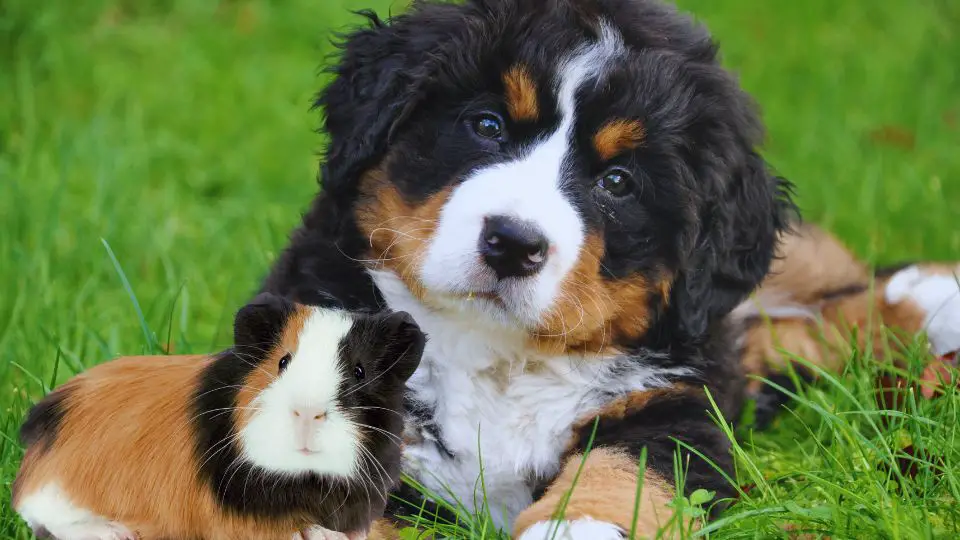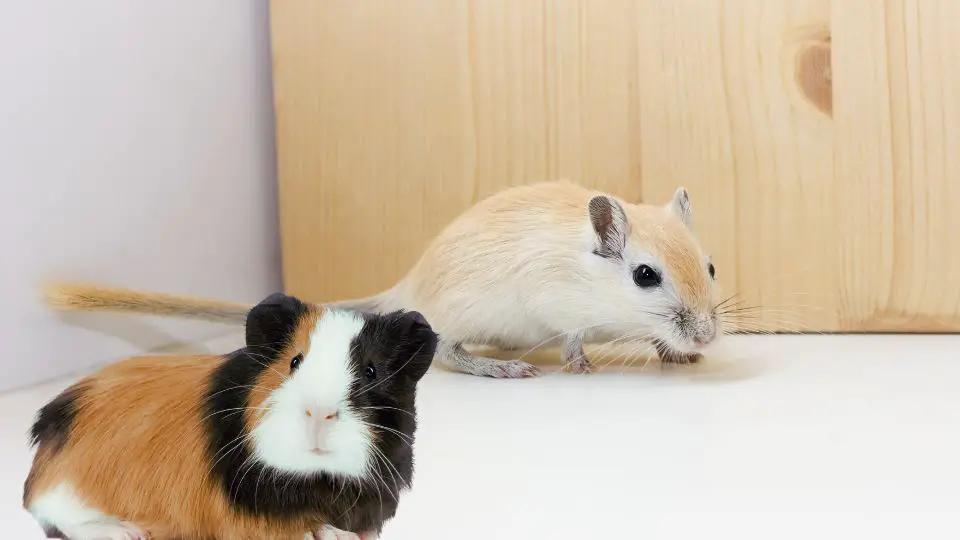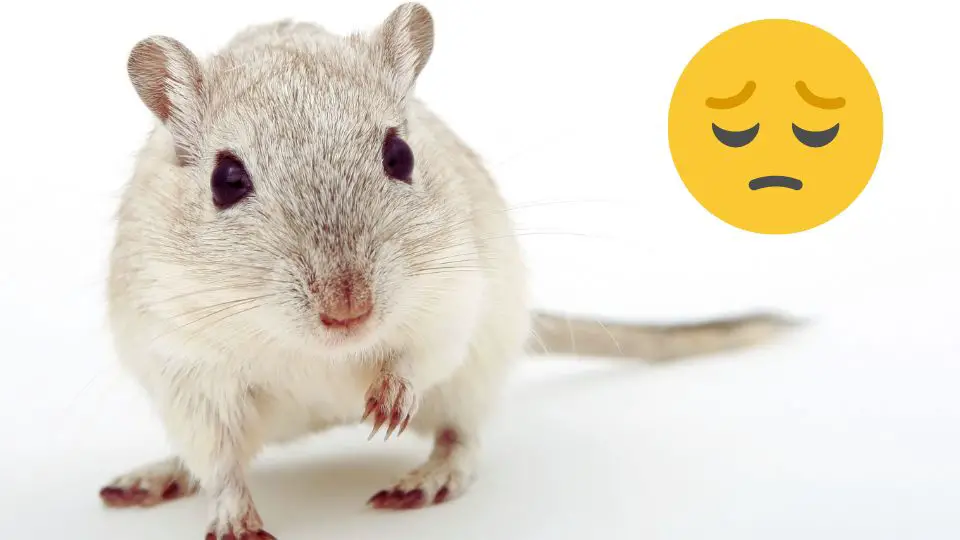Gerbils are small, adorable creatures known for their meticulous grooming habits. As a responsible gerbil owner, you may wonder if it’s necessary to bathe your furry friend.
The answer is no, it is generally not necessary to bathe a gerbil. Gerbils are very clean animals and have natural grooming behaviors that help them maintain their hygiene.
In this article, we will explore the topic of bathing gerbils and provide valuable insights into whether or not it’s recommended.
Understanding Gerbil Grooming Habits
Gerbils are instinctively groomers and spend a significant amount of time cleaning themselves. They have a variety of grooming behaviors that are essential for their well-being:
- Self-Grooming: Gerbils are meticulous groomers and will use their paws and teeth to clean their fur. They lick their fur to remove dirt, debris, and excess oil, ensuring their coat remains clean and free of parasites.
- Brushing: Gerbils use their teeth to groom and comb through their fur, removing any tangles or knots. They also use their paws to brush their fur, similar to how we would brush our hair.
- Face Cleaning: Gerbils have specialized grooming techniques for cleaning their face, including rubbing their paws on their cheeks and whiskers to remove any debris or food particles.
Are gerbils hygienic?
Yes, gerbils are generally considered hygienic animals. They have natural grooming behaviors and are known for keeping themselves clean. Gerbils spend a significant amount of time grooming their fur, which helps to remove dirt and maintain their overall hygiene.
They also have specialized oil glands that produce oils to keep their fur soft and clean. Additionally, gerbils create dust baths by rolling around in fine sand or dust, which helps to absorb excess oils and keep their fur in optimal condition.
Dust Baths
One of the unique grooming behaviors of gerbils is their use of dust baths. Dust baths help to keep their fur clean, healthy, and free from excess oils. Gerbils will roll and burrow in fine dust, such as chinchilla sand or commercial dust bath products. The dust absorbs any oils or moisture from their fur, leaving it clean and well-groomed.
Gerbils will often engage in dust baths several times a week, especially during their most active periods. Provide a suitable container filled with the appropriate dust material to facilitate their grooming routine. The container should be large enough for the gerbil to roll and move comfortably.
It’s crucial to avoid using water for bathing gerbils, as their fur is not designed to get wet. Wetting their fur can disrupt its natural oils and cause unnecessary stress. Dust baths are the preferred method of grooming for gerbils and should be provided as part of their regular care routine.
Reasons to Avoid Bathing
Unlike some other pets, gerbils have unique characteristics that make bathing unnecessary and potentially stressful for them.
Natural Grooming Abilities
Gerbils are equipped with specialized grooming behaviors that allow them to keep their fur clean and healthy. They have the ability to self-groom by licking their fur, brushing it with their teeth, and using their paws to comb through tangles. This natural grooming process effectively removes dirt, debris, and excess oils from their fur, keeping it in good condition.
Risk of Stress and Health Issues
Bathing can be a stressful experience for gerbils, as they are not accustomed to water or wet environments. The unfamiliar sensation and confinement of water can cause them significant distress and anxiety. This stress can have negative consequences on their overall well-being and may even lead to health issues.
- Skin and Fur Problems: Gerbils have sensitive skin, and exposure to water can disrupt the natural oils that keep their fur soft and healthy. Bathing can strip these essential oils, resulting in dry skin, irritation, and potential fur loss. This can also make them more susceptible to skin infections or other dermatological issues.
- Respiratory Issues: Gerbils are not well-adapted to wet environments, and their fur is not designed to dry quickly. Prolonged wetness can lead to chilling and respiratory problems. Inadequate drying can also create an environment for bacterial growth, further increasing the risk of infections.
- Stress and Behavioral Changes: Gerbils are highly sensitive animals, and subjecting them to a bath can cause significant stress and anxiety. This stress can lead to changes in behavior, such as decreased appetite, decreased activity, and an overall decline in their well-being.
Alternatives to Bathing
Instead of bathing, there are alternative methods to help maintain your gerbil’s cleanliness and overall hygiene:
- Dust Baths: Gerbils naturally engage in dust baths as part of their grooming routine. Providing them with a suitable container filled with chinchilla sand or commercial dust bath products allows them to clean their fur effectively and remove excess oils.
- Spot Cleaning: If you notice a small area of their fur that needs attention, you can use a soft, damp cloth or a grooming wipe specifically designed for small animals. Gently wipe the affected area, being careful not to get the entire gerbil wet.
Instances Where Bathing May Be Necessary
Bathing a gerbil should always be done under the guidance of a veterinarian to ensure their safety and well-being. In our experience, there are some situations where bathing may be necessary for a gerbil’s health or cleanliness.
Accidental Soiling
Sometimes, gerbils may accidentally soil themselves due to various reasons, such as diarrhea, getting stuck in a sticky substance, or encountering a harmful substance. In such cases, if the soiling is extensive and cannot be resolved through spot cleaning, a bath may be required to ensure their cleanliness and prevent any potential health issues.
Health Concerns
Certain health conditions may require bathing as part of the treatment plan. For instance, if a gerbil is infested with external parasites, such as mites or fleas, a bath with a veterinarian-recommended medicated shampoo may be necessary to eliminate the parasites and alleviate the associated discomfort.
Consultation with a Veterinarian
Before considering bathing a gerbil for any reason, it is essential to consult with a veterinarian who specializes in small animals. They can evaluate the specific situation and provide expert advice on the best course of action.
A veterinarian will be able to assess the gerbil’s overall health, recommend appropriate bathing techniques, and suggest any necessary products that are safe for use.
Steps for Safely Bathing a Gerbil
If you find yourself in a situation where bathing your gerbil is required, it is important to approach the process with care and take the necessary precautions to minimize stress and ensure their safety. Here are the steps for safely bathing a gerbil.
Preparing the Bathing Area
- Choose a Suitable Container: Select a small container, such as a shallow basin or sink, that is large enough to accommodate your gerbil comfortably. Ensure the container is clean and free from any chemicals or substances that could be harmful to your pet.
- Use Lukewarm Water: Fill the container with lukewarm water. Test the water temperature with your wrist or thermometer to ensure it is not too hot or too cold. Gerbils are sensitive to extreme temperatures, so it is crucial to provide water that is comfortably warm.
Gently Bathing Your Gerbil
- Approach with Calmness: Approach your gerbil with a calm and gentle demeanor. Speak softly to reassure them and avoid sudden movements that may startle or stress them.
- Supportive Handling: Gently pick up your gerbil, supporting their body with one hand while using the other hand to guide them into the water. Be careful to provide a secure grip to prevent any accidental slips or escapes.
- Minimal Stress: Keep the bathing process as brief as possible to minimize stress. Use a soft cloth or sponge to wet their fur gently, avoiding the head and ears. It is important to note that gerbils have sensitive respiratory systems, so it is best to avoid wetting their face.
- Mild Shampoo (if necessary): If you need to use a mild shampoo specifically formulated for small animals, apply a small amount to your hand and gently work it into the wet fur. Be cautious to avoid the eyes, ears, and mouth. Thoroughly rinse the fur to ensure all traces of shampoo are removed.
Drying and Aftercare
- Pat Dry: Carefully remove your gerbil from the water and wrap them in a soft towel. Gently pat their fur to remove excess water. Avoid rubbing or vigorous drying, as it can cause stress or damage their delicate fur.
- Warm Environment: Place your gerbil in a warm and comfortable environment, such as a cozy cage or a designated drying area. Ensure the area is draft-free and away from any potential hazards.
- Allow Natural Drying: Allow your gerbil to air dry naturally. Their fur will dry relatively quickly, but you can also provide a gentle airflow using a fan set on low or a hairdryer on the cool setting, if necessary. Keep a safe distance and avoid directing the airflow directly at the gerbil.
- Return to Enclosure: Once your gerbil is completely dry and comfortable, gently return them to their enclosure. Ensure the environment is clean, secure, and equipped with fresh food, water, and bedding.
Wrapping up
In conclusion, gerbils are highly efficient self-groomers and generally do not require regular baths. Their natural grooming habits, along with the provision of a dust bath area, are usually sufficient to maintain their cleanliness and well-being.
However, in exceptional circumstances where gerbils become soiled or develop certain health issues, bathing may be necessary. If you find yourself in such a situation, it is crucial to follow the proper guidelines, use safe techniques, and consult with a veterinarian for expert advice.
Always prioritize your gerbil’s comfort and minimize stress during any bathing process. By understanding and respecting their unique grooming needs, you can ensure a happy and healthy life for your beloved gerbil companion.







